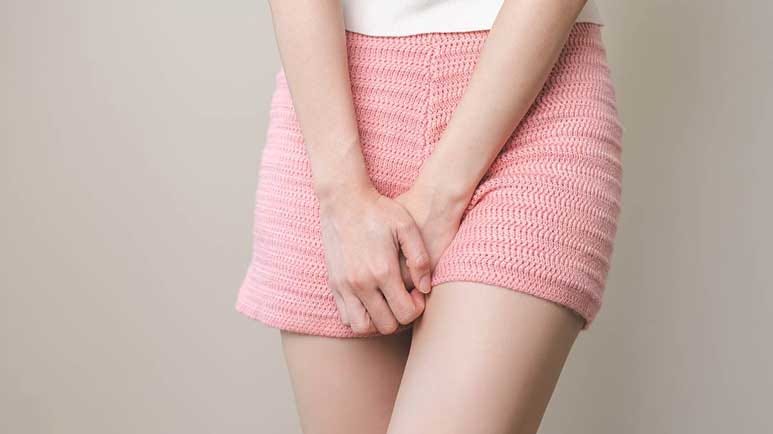What Causes Vaginal Itching (and How to Find Relief Safely)
Description
STORY AT-A-GLANCE
Vaginal or vulvar itching usually points to one of five causes: yeast infection, bacterial vaginosis, contact irritation or allergy, sexually transmitted infection, or a skin condition
To calm irritation fast, stop using fragranced products and harsh soaps, avoid douching, and switch to gentle, pH-balanced care. Choose breathable cotton fabrics and avoid tight, non-ventilated clothing that traps heat and moisture
Focus on restoring the skin barrier and microbiome — use plain water for cleansing, natural, fragrance-free moisturizers for protection, and steady nutrition to support hormonal and metabolic balance. Relief happens faster once irritants are removed and the body’s natural defenses are allowed to reset
Seek urgent care if severe pain, sores, fever, foul-smelling discharge, occurs. Pregnant, diabetic, or immunocompromised women also need extra care
See a clinician if symptoms last longer than three days or keep recurring, since persistent itching often signals an infection, hormone imbalance, or skin disorder that requires professional treatment

Vaginal discomfort is one of the most common yet least discussed health issues among women, affecting millions each year across every age group. Symptoms vary from one female to another, but they often include burning, redness, and relentless itch that makes daily comfort almost impossible.
But vaginal itching is more than an inconvenience — It’s often a signal that something deeper is wrong with the microbiome, hormone balance, or even immune response.
To understand vaginal itching causes, it’s important to remember that it’s not just about relieving irritation — it’s about protecting one of the most microbiologically active and hormonally sensitive systems in the body. That’s why knowing how to identify the cause and respond correctly is so important before reaching for any over-the-counter remedy.
What Causes Vaginal Itch (and How Is It Different from Vulvar Itch)?
Most people use the term “vaginal itch” to describe any irritation in the genital area, but in reality, much of that discomfort doesn’t originate inside the vagina at all. To better distinguish between the two, it’s vital to know the parts of the female genital system.
Vagina vs. vulva — which is which? The vagina is the stretchy, internal muscular canal that connects the cervix to the vulva, and is located between the bladder and rectum. Meanwhile, the vulva is the external part — the lips (the inner and outer labia), clitoris, and surrounding skin that protect the entrance of the vagina.1 Understanding this difference matters because where the itch starts often reveals what’s causing it.
Both the vagina and vulva are extremely sensitive — The vulva has a dense network of sensory nerves and thinner, more delicate skin than most areas of the body. That means it reacts intensely to irritants like fragrances, detergents, tight clothing, or even overly hot water.
<label class="hide-text" contenteditable="false">Text within this block will maintain its original spacing when published</label>The vagina, on the other hand, is lined with mucous membranes that maintain a slightly acidic pH (around 3.8 to 4.5) and a thriving population of Lactobacillus bacteria that protect against infection. When that pH balance shifts — because of antibiotics, hormones, or even semen — pathogenic organisms like Candida or Gardnerella can overgrow, triggering internal itching, burning, and discharge.2
Vaginitis is the most common cause of internal itching — Defined as the inflammation or infection of the vaginal canal, it affects millions of women each year.3 According to the Cleveland Clinic, there are several key forms, which include yeast infection (candidiasis), bacterial vaginosis (BV), and trichomoniasis, a sexually transmitted infection. Each has distinct symptoms, but all share one core feature — inflammation of the vaginal tissue that leads to irritation and pruritus (itching).4
On the other hand, vulva itching may be caused by chemical irritants — Contact dermatitis, an allergic or irritant reaction, often results from products like scented soaps, detergents, panty liners, or contraceptives.5
<label class="hide-text" contenteditable="false">Text within this block will maintain its original spacing when published</label>In short, vaginal itch refers to irritation originating inside the vaginal canal, while vulvar itch affects the outer skin and surrounding tissue. The difference matters because treatment depends entirely on location and cause. Internal vaginal itching causes — like yeast or BV — require restoring microbial balance, while external ones like contact dermatitis call for removing irritants and protecting fragile skin.
Recognizing this distinction is the first step toward real relief. Once it’s clear where the discomfort starts, it’s possible to narrow down what’s driving it and avoid the endless cycle of treating the wrong problem with the wrong remedy.
Is It Yeast, BV, Dermatitis, a Sexually Transmitted Infection (STI), or Something Else?
When vaginal or vulvar itching strikes, identifying the cause is key before reaching for any vaginal itch cream or medication. Itch can stem from infection, irritation, or even hormonal change, and each one demands a completely different remedy. Treating a bacterial infection with antifungal cream, for example, can worsen irritation rather than relieve it.
The following are the most common culprits of vulvovaginal itching, each with telltale signs that help tell them apart.6 7 8
Yeast infection — A yeast infection, one of the most common types of vaginitis, occurs when the naturally occurring fungus Candida albicans grows excessively in the vagina, upsetting the balance of healthy bacteria. This overgrowth can lead to itching, burning, redness, and a thick white discharge resembling cottage cheese.
<label class="hide-text" contenteditable="false">Text within this block will maintain its original spacing when published</label><pre cl






